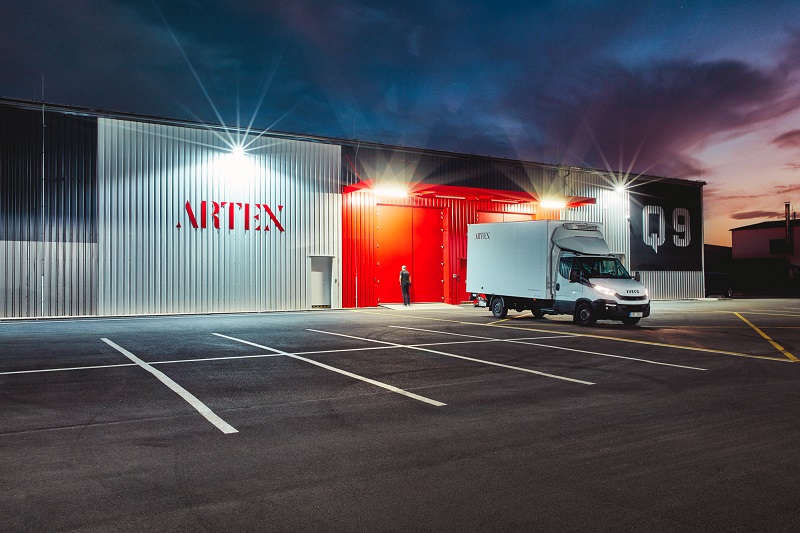
The fine art logistics industry is striving to improve its approach to sustainability, making their operations more environmentally friendly, and ultimately contributing to a more sustainable art market. What these changes should be, and how they should be enacted, is a constant journey of discovery for ICEFAT members, with many of our agents across the globe taking great strides with green initiatives. In this Spotlight blog, we’re looking at how one agent, Artex Art Services, S.R.O. (based in Prague, Czech Republic) is tackling this important issue. In fine art storage, transport and installation, Artex has in recent years levelled up the service it offers. This development has not come at the cost of developing sustainability practices and is a great example for the industry at large.
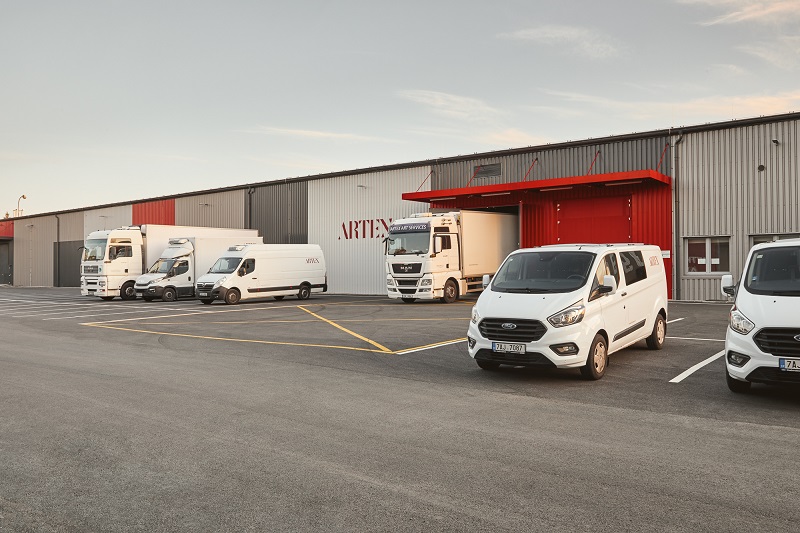
Veronika Lindová is Artex’s Fine Art Coordinator, and one of the leading proponents of the sustainable approach to fine art logistics championed by Artex. She says: “With our proactive approach to the issue of sustainability, we want to be the driving force that will inspire other freight forwarders in all areas of transport to gradual changes”. Artex’s commitment to the low-energy approach started in 2018, when designing their new storage facility. The facility includes a solar panel plant installed on its roof, which provides a large part of the energy that Artex consumes. This enables the electrical art handling equipment they use to not have to rely solely on fossil fuels for its energy.
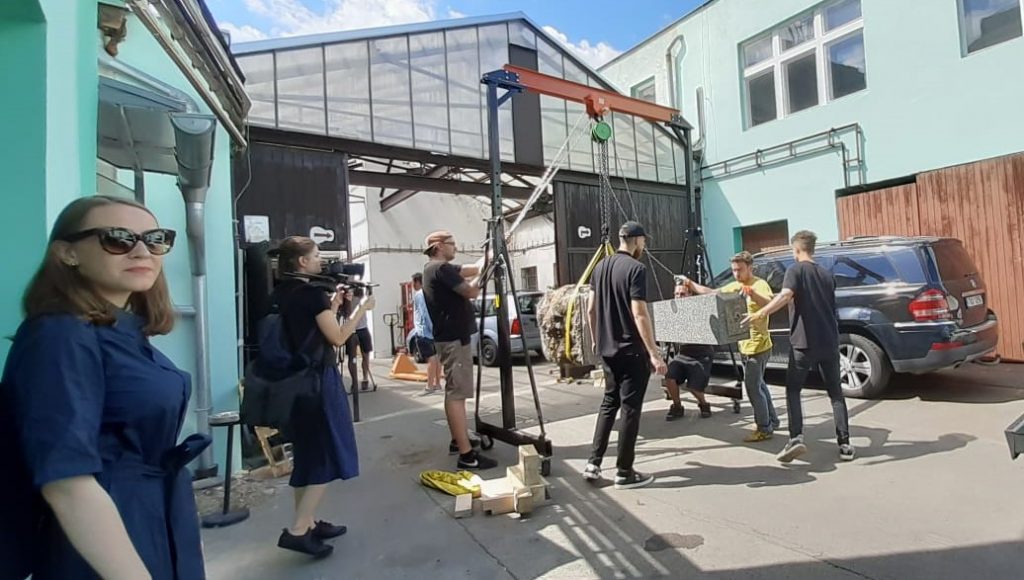
As fine art transporters, a key cause of carbon emissions is their vehicle fleet. The company renews its vehicle fleet regularly, striving to acquire the greenest options available on the market. When it comes to their packaging and crating, Artex aims to recycle all crates that it can manage, and uses 100% compostable bioplastic packaging material, ensuring minimal impact on the environment from waste.
Covid-19 has meant investment in greener technologies has slowed but this has not stopped Artex from continuing to plan its activities so be as efficient as possible. Reducing energy consumption benefits the business and the environment so this strategy has continued in earnest. The downtick in activity over the past six months has also allowed more time for the senior figures in the company to consider their next steps in environmentally friendly shipping – hydrogen powered vehicles and handling equipment may be on the horizon! Lindová says “Without embarking on the path of sustainability, we only contribute to the gradual plundering of the Earth. We feel that sustainability is our way and we will do our best not to leave this positive path”.
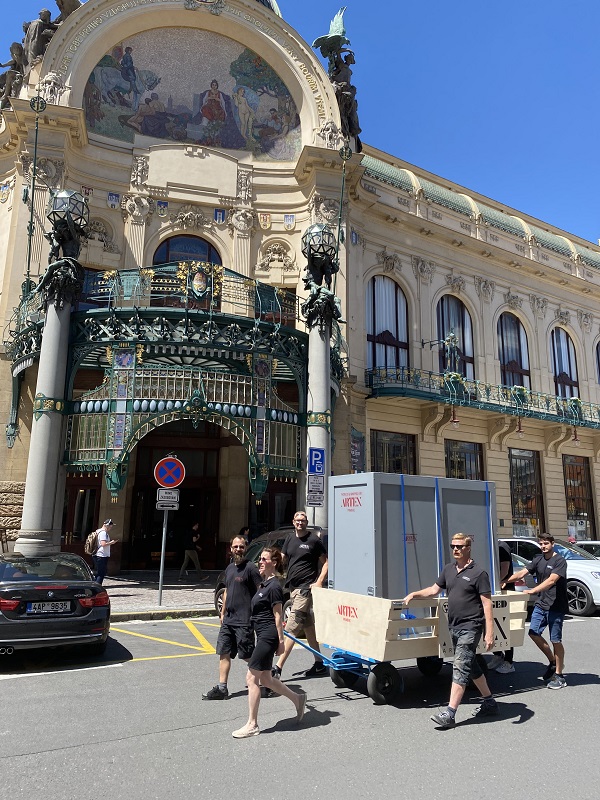
Artex’s sustainable activities brought them to the attention of Galerie Rudolfinum, a leading Prague contemporary gallery, who had in mind a unique art project involving minimal or no carbon footprint. The exhibition, entitled Unplugged, is a group show of ten artists from Austria, Belgium, the Czech Republic, and Slovakia who created site-specific projects with minimal use of energy for their production and with emphasis on handicraft. The title is meant to mirror the idea of musical performers playing unplugged, i.e. exclusively on acoustic musical instruments instead of electric ones. Galerie Rudolfinum wants to highlight the qualities and processes that we tend to overlook due to the ease of machine and automated production. It wants the audience to leave its comfort in zone, setting out to limit the resources spent on the production of artificial materials and their transportation.
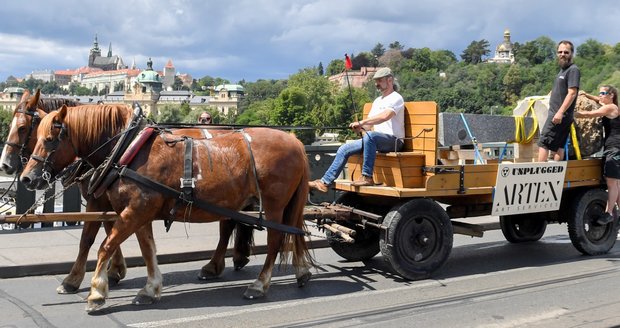
Artex came in to support the logistics for bringing the exhibition together, burning very little fuel in the process. Lindová says “We collected the artworks from individual lenders either from their studios or private addresses from various locations within Prague district… we covered almost 25 kilometers”. This mammoth undertaking involved carrying everything from around the region by carriage – some foot and some horse, which of course resulted in a number of new logistical challenges in order to transport the works safely and securely. A non-motorized boat was almost utilised to transport works up the Vltava River, which runs through Prague, but in the end this proved impossible and both a human and a horse drawn carriage were utilised…… The longest journey took place from Belgium, where a cyclist carried one artwork from Antwerp to Prague, a journey of over 500 miles!

Artex was mindful that this operation required specialised safety procedures in order to keep to the high standards for moving art expected of all ICEFAT agents. Reinforced crates were made for each artwork and fixed to the cart to ensure the elements could not reach the works. Couriers from Galerie Rudolfinum accompanied the artworks in transit, ensuring that everything was transported smoothly. Each route was planned and inspected prior to the operation in order to prepare for any obstacles and all weather events were planned-for, but luckily the operation took place in glorious Prague sunshine! All ICEFAT agents uphold the highest standards in the fine art shipping industry and these precautions were necessary for this most unique operation.
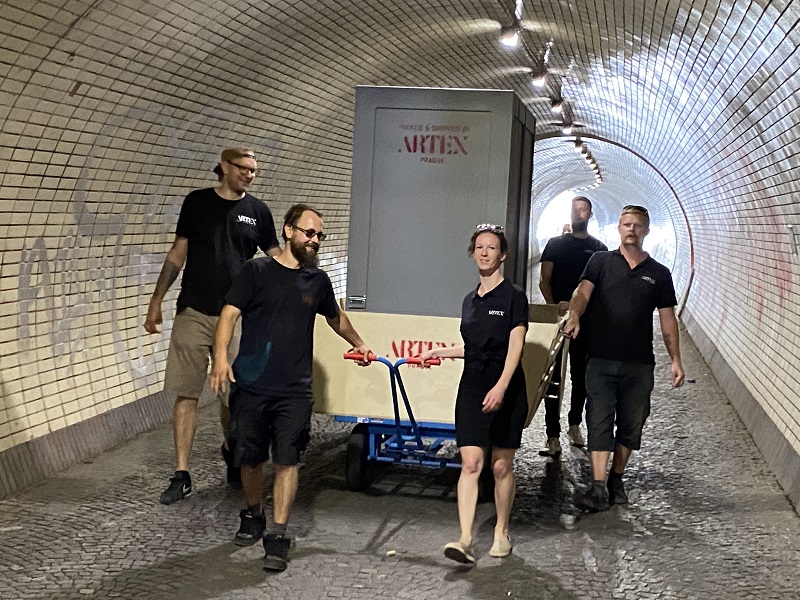
The operation was a useful experience for all involved, from the gallery, to the artists, to the visitors, and demonstrated that a great contemporary art exhibition can be carbon-free. Artex learned from the experience too, beyond the sustainable mechanics of the task. Lindová reports that “this event had a positive impact on our entire team, both physically and mentally: we spent three sunny days in the fresh air, during the walk we experienced the center of Prague from a completely different perspective, we talked and strengthened relations.” The exhibition will be deinstalled in exactly the same way and the works returned on foot, by bike, or by horse-drawn cart. Safety and security precautions will be followed just as they were for the installation operation.

We can learn much from the work of Artex, both through the Unplugged exhibition, and in their broader approach to sustainability. Being greener is not just about using less diesel and buying solar panels; it’s a cultural shift – to bring the art world into this new paradigm of thinking and acting with a more sustainable mindset and positive outlook for a greener future.
Footnote: Out-of-door hand carries and similar pre-industrial modalities are not approved by the insurance policies of most museums and collections. Artex worked extensively with the exhibition organizers and couriers to coordinate the modes of transportation, while mitigating risks given the parameters for collection.



